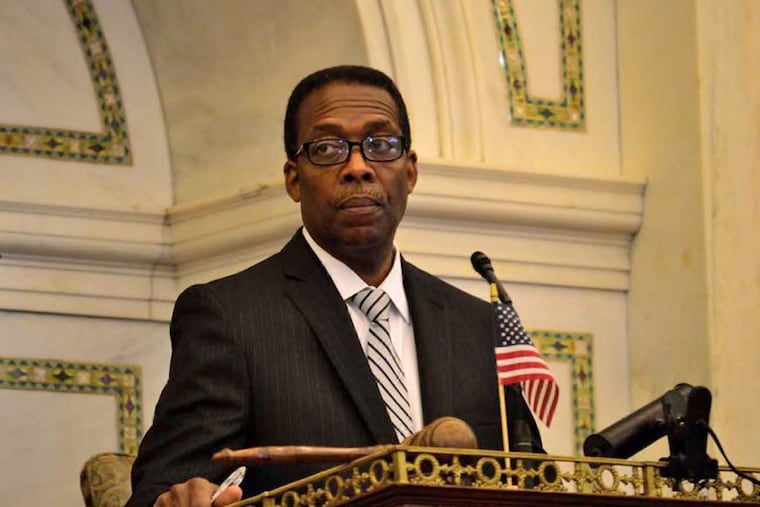District land deal raises questions on Councilmanic prerogative, again | Editorial
The ultimate question is who gets to determine what gets developed in a neighborhood -- and by whom.

Another day, another story of a member of City Council intervening in land use decisions in a way that has raised questions. According to reporting by Ryan Briggs for WHYY’s PlanPhilly, when Council President Darrell L. Clarke’s developer of choice lost a Philadelphia Redevelopment Authority bid for the sale of a publicly owned vacant parcel in his district, he did not approve the winning bid. Instead, Clarke tweaked the bid and the developer — the landlord for Clarke’s new satellite district office which he got at a heavy discount — was preparing to submit the same proposal again,.
Just last month, William Bender of The Inquirer reported that Clarke’s office intervened in another land sale at the request of another developer. In November, Bender and Mark Fazlollah reported that Councilmember Kenyatta Johnson helped a friend flip a property in his district for a large profit.
This is their prerogative.
Council members follow a practice called councilmanic prerogative — a tradition, not law, that the district Councilmember has the final say on the disposition of city owned land in their district which other Council members support by voting approval. According to an analysis by Pew in 2015, between 2008 and 2014, 99.5 percent of the 730 bills that were related to land use and zoning passed unanimously.
The rationale behind prerogative is that district Council members knows their districts best, and can provide a safeguard against unwanted use of land. It argues that it’s easier for community members to bring their concerns about a proposed project to a single council member rather than to all 17 members of Council. Johnson, for example, calls the practice “councilmanic oversight.”
But on the other hand, council members’ interventions in land deals continue to raise eyebrows.
The ultimate question is who gets to determine what gets developed in a neighborhood — and by whom. Just selling parcels of land to the highest bidder isn’t always the best option. For example, Clarke’s explanation for his recent intervention was that the area would benefit from a commercial property — an element that was included in his landlord’s bid, but not in the more competitive bid — or the original request for proposals.
That might be true. But prerogative assumes that 10 people have the ability to weigh the objective and subjective considerations that go into every single land use decision alone.
The goal of any reform should be to ensure that in every land use decision there is a mix of expertise, fairness, community input, and transparency.
In December, 2013, Philadelphia established a Land Bank to do exactly that — and to bypass prerogative by having Council hand over vacant lots. It should come as no surprise that Council has been reluctant to hand over thousands of lots, which has severely compromised the effectiveness of the Land Bank.
Prerogative is the de facto law of the land that governs the land disposition process. But that process is not set in stone, and there are a number of ways to make it better. Thursday, in the second part of this editorial, we’ll review some reforms to consider.